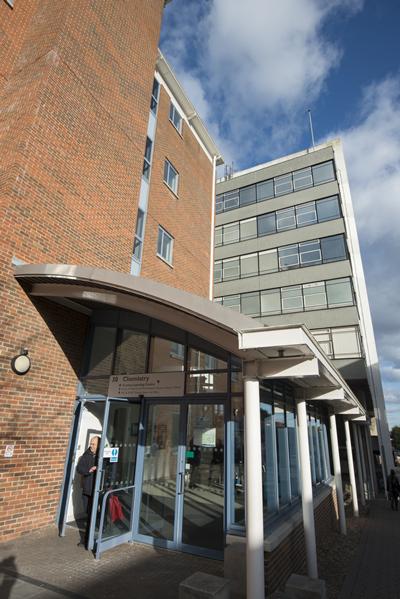Major grant brings new opportunities for Chemistry research at Southampton

The future for research into cutting edge concepts in Chemistry at Southampton is assured following a £1million investment in the core techniques of Nuclear Magnetic Resonance (NMR) spectroscopy and Mass Spectrometry (MS). The University has received the money for the latest experimental equipment through a grant from the Engineering and Physical Sciences Research Council (EPSRC), as part of a UK-wide investment in Core Capability for Chemistry research.
Professor Phil Gale, Head of Chemistry says “This core capability funding has secured the future of multi-user NMR and mass spectrometry facilities at Southampton. It supports a whole range of important research projects that span the breadth of our discipline and brings many exciting opportunities for researchers.”
.jpg_SIA_JPG_fit_to_width_INLINE.jpg)
The up-to-the-minute facilities will enable hundreds of researchers from dozens of specialist research groups in Southampton and further afield to design, synthesise and characterise molecules, which is a critical component of research into improved drugs, more efficient energy sources, improved industrial processes and many other applications. It follows another substantial investment in NMR research by the University.
“Chemistry is a vital driver for innovation in the UK across healthcare, energy and high tech functional materials, and the new instrumentation will play a key part in enabling future advances in these important research themes in Southampton,” adds Gill Reid, Professor of Inorganic Chemistry.
.jpg_SIA_JPG_fit_to_width_INLINE.jpg)
Richard Brown, Professor of Organic Chemistry, comments: “Investing in our research capability gives us the opportunity to offer well-equipped laboratories to chemists at the start of their careers, from undergraduates to post-doctoral researchers, as well as our experienced academic staff. Collaborative projects with other disciplines and external organisations will also benefit. Our EPSRC Centre for X-Ray Crystallography is the best in the UK, now our facilities in NMR and MS are also world-class. The University has backed this investment by upgrading our scanning electron microscopy which is an important analytical technique to study materials at the atomic scale, from new catalysts to corrosion of key components in our electricity distribution network. ”
The new facilities will be invaluable in training and educating students in modern analytical techniques; new taught courses will be introduced such as the MSc in Analytical Instrumental Chemistry. To celebrate this important investment a symposium at the University has both launched and promoted the new facilities to academic and industrial researchers in the region and beyond and the Royal Society of Chemistry has welcomed the investment from EPSRC, in all worth £15million for 15 UK universities.
Other University of Southampton sites
Our EPSRC Centre for X-Ray Crystallography is the best in the UK, now our facilities in NMR and MS are also world-class. The University has backed this investment by upgrading our scanning electron microscopy which is an important analytical technique to study materials at the atomic scale, from new catalysts to corrosion of key components in our electricity distribution network.